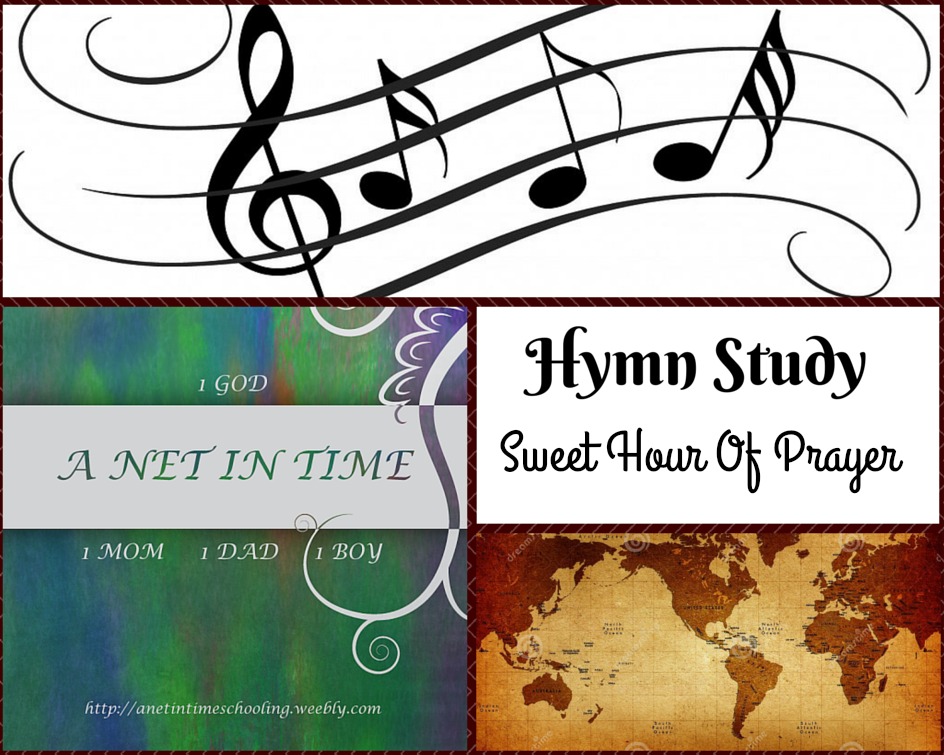Sweet hour of prayer! sweet hour of prayer!
That calls me from a world of care,
And bids me at my Father’s throne
Make all my wants and wishes known.
In seasons of distress and grief,
My soul has often found relief
And oft escaped the tempter’s snare
By thy return, sweet hour of prayer!
Sweet hour of prayer! sweet hour of prayer!
The joys I feel, the bliss I share,
Of those whose anxious spirits burn
With strong desires for thy return!
With such I hasten to the place
Where God my Savior shows His face,
And gladly take my station there,
And wait for thee, sweet hour of prayer!
Sweet hour of prayer! sweet hour of prayer!
Thy wings shall my petition bear
To Him whose truth and faithfulness
Engage the waiting soul to bless.
And since He bids me seek His face,
Believe His Word and trust His grace,
I’ll cast on Him my every care,
And wait for thee, sweet hour of prayer!
Sweet hour of prayer! sweet hour of prayer!
May I thy consolation share,
Till, from Mount Pisgah’s lofty height,
I view my home and take my flight:
This robe of flesh I’ll drop and rise
To seize the everlasting prize;
And shout, while passing through the air,
"Farewell, farewell, sweet hour of prayer!"
There seems to be two William Walford around at the time, and which one is the author is up for some debate. (source) The same source that gave me that information also wrote these words
When not referring to matters of taste, “sweet” indicates something that is pleasant, agreeable and delightful. The word also has an older meaning–which might have been known by Mr. Walford–and that is respected, indicating that the hour of prayer is esteemed and held in high honour. All of that surely describes well our times before God’s throne.
I read that and thought wow...that adds an extra layer to this hymn doesn't it. To not just think of how the author appreciates his time of prayer, but how he respects his time of prayer, almost like he covets this time...
THIS THIS my readers is what I need to learn to do. To covet, to deeply respect and long for, my time of prayer. To treat it like the treasure that it is, and through that to learn to be the prayer warrior that God calls me to be.
Back to the hymn study. :)
More about Walford.
Thomas Salmon, a New York native, spent some time in Coleshill, Warwickshire, England, where he became acquainted with William. He tells this tale of what happened one day, while he was visiting the blind pastor:
"...He repeated two or three pieces which he had composed, and having no friend at home to commit them to paper, he had laid them up in the storehouse within. "How will this do?" asked he, as he repeated the following lines, with a complacent smile touched with some light lines of fear lest he subject himself to criticism. I rapidly copied the lines with my pencil, as he uttered them, and sent them for insertion in the Observer, if you should think them worthy of preservation." (source)
Walford, a blind preacher, with a prodigious memory. Amazing isn't it? A person, who owned a trinket shop, so easily discounted, composing hymns that are still well-known today. God works in such interesting ways. :)








 RSS Feed
RSS Feed



